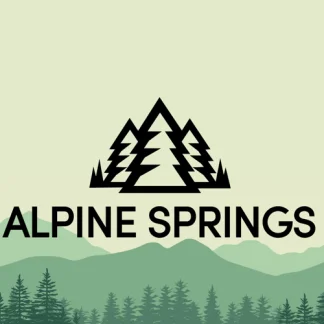Accessible Recovery Services
Accessible Recovery Services - Main Street provides the very best comprehensive ...
Alpine Springs Rehabilitation & Recovery, located in Linesville, Pennsylvania, is an accredited full spectrum addiction treatment center. It specializes in medical detoxification and substance use disorder treatment, offering a scenic and supportive environment to foster recovery.
Alpine Springs Rehabilitation & Recovery delivers individualized treatment using evidence based practice with a variety of services offered including:
Alpine Springs’ inpatient drug rehab program offers a secure, structured environment where residents can focus entirely detoxification and on recovery. Within this setting, individuals can participate in daily therapy sessions, including individual, group, and family counseling, while also having access to psychiatric and medical care.
For those in need, Alpine Springs provides medically supported detox services. With an average length of stay ranging between 7-10 days, detox ensures the safety and comfort of clients during withdrawal, managing symptoms under the supervision of trained medical professionals.
As part of its comprehensive approach to treatment, Alpine Springs provides medication assisted treatment (MAT), specifically incorporating the use of Sublocade. This medication can help to manage cravings and withdrawal symptoms associated with opioid addiction, providing an extra layer of support in the recovery journey.
Contact us for more information: (814) 818-0002

Connect with Alpine Springs Rehabilitation and Recovery - Detox Facility by calling their admissions team directly.
(814) 818-0002 Website Get DirectionsThe Commission on Accreditation of Rehabilitation Facilities (CARF) is a non-profit organization that specifically accredits rehab organizations. Founded in 1966, CARF's, mission is to help service providers like rehab facilities maintain high standards of care.
CARF Accreditation: Yes
Experiential therapy is a form of therapy in which clients are encouraged to surface and work through subconscious issues by engaging in real-time experiences. Experiential therapy departs from traditional talk therapy by involving the body, and having clients engage in activities, movements, and physical and emotional expression. This can involve role-play or using props (which can include other people). Experiential therapy can help people process trauma, memories, and emotion quickly, deeply, and in a lasting fashion, leading to substantial and impactful healing.
Group therapy is any therapeutic work that happens in a group (not one-on-one). There are a number of different group therapy modalities, including support groups, experiential therapy, psycho-education, and more. Group therapy involves treatment as well as processing interaction between group members.
In individual therapy, a patient meets one-on-one with a trained psychologist or counselor. Therapy is a pivotal part of effective substance abuse treatment, as it often covers root causes of addiction, including challenges faced by the patient in their social, family, and work/school life.
Nutrition therapy, aka medical nutrition therapy (MNT), is a way of treating physical, emotional, and medical conditions through diet. Specific dietary plans are designed by professional nutritionists or registered dietitians, and patients follow them in order to positively affect their physical and mental health.
Group therapy is any therapeutic work that happens in a group (not one-on-one). There are a number of different group therapy modalities, including support groups, experiential therapy, psycho-education, and more. Group therapy involves treatment as well as processing interaction between group members.
In individual therapy, a patient meets one-on-one with a trained psychologist or counselor. Therapy is a pivotal part of effective substance abuse treatment, as it often covers root causes of addiction, including challenges faced by the patient in their social, family, and work/school life.
Nutrition therapy, aka medical nutrition therapy (MNT), is a way of treating physical, emotional, and medical conditions through diet. Specific dietary plans are designed by professional nutritionists or registered dietitians, and patients follow them in order to positively affect their physical and mental health.
In individual therapy, a patient meets one-on-one with a trained psychologist or counselor. Therapy is a pivotal part of effective substance abuse treatment, as it often covers root causes of addiction, including challenges faced by the patient in their social, family, and work/school life.
Nutrition therapy, aka medical nutrition therapy (MNT), is a way of treating physical, emotional, and medical conditions through diet. Specific dietary plans are designed by professional nutritionists or registered dietitians, and patients follow them in order to positively affect their physical and mental health.
Nutrition therapy, aka medical nutrition therapy (MNT), is a way of treating physical, emotional, and medical conditions through diet. Specific dietary plans are designed by professional nutritionists or registered dietitians, and patients follow them in order to positively affect their physical and mental health.
Accessible Recovery Services - Main Street provides the very best comprehensive ...
Hope Center Ministries - Men's Center is a Christian based 12 Step residential p...
Community Counseling Center is a private rehab located in Greenville, Pennsylvan...